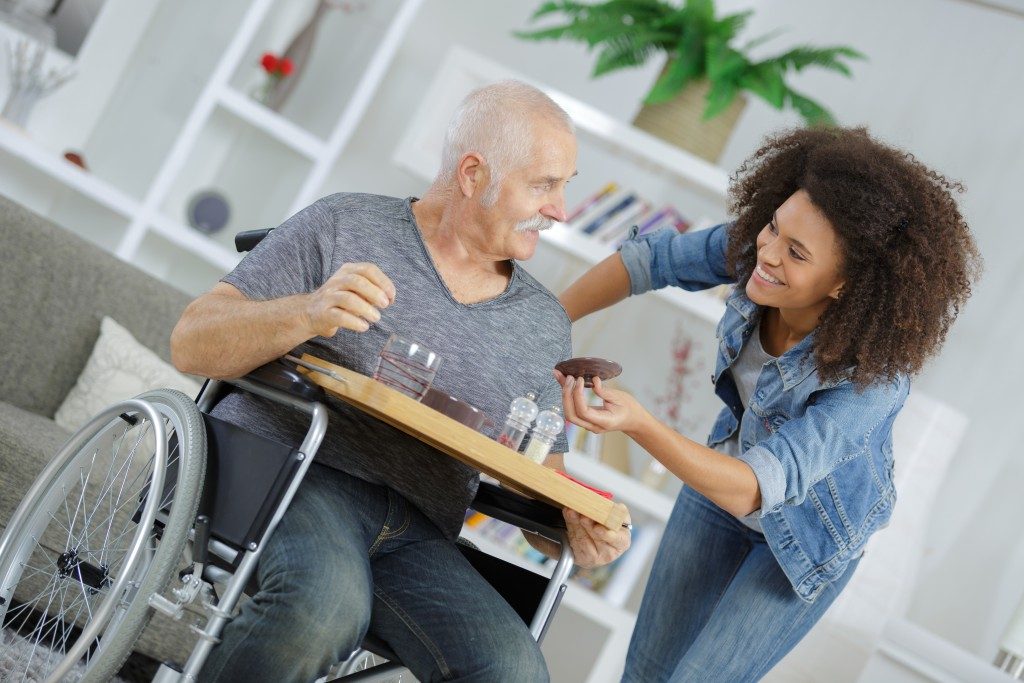People in their 60s and older are at greater risk for severe illness from COVID-19, according to the World Health Organization. This is mainly due to their weaker immune systems. Some older people may also have underlying conditions that weaken their immune system further. Their bodies are just not equipped to fight this infectious disease. As such, it’s vital for them to stay at home and away from crowds during this pandemic.
However, older adults may not have enough to do when they’re stuck at home. They can’t visit the park or play bingo with their pals.
People in their 60s need to stay active both physically and socially. More than a million older adults say that they go over a month without speaking with friends, family members and visitors pre-pandemic. Now that they can’t come out as much and can only have limited visitors, this feeling of isolation may intensify.
And being indoors all the time can lead to a sedentary lifestyle. Both can lead to major health risks.
Isolation and Inactivity Health Risks
The National Health Service says that loneliness increases the risk of premature death. it cited multiple studies linking loneliness to a variety of health risks. It was seen to increase the risk of conditions, like dementia, heart disease, stroke and different types of depression.
Being constantly inactive can lead to different chronic diseases as well. These include obesity, heart disease, stroke, high cholesterol, diabetes, different cancers and osteoporosis. This is because having a sedentary lifestyle can make a person gain more weight, lose muscle strength, weaken their metabolism and immune system and develop hormonal imbalances.
Keep Older Adults Healthy During Quarantine
Older adults are at risk of various physical and mental illnesses during this pandemic. Here are physical and social activities you or a live-in home care provider can facilitate to keep your aging loved one healthy.
- Stay connected through technology – Older adults must be bummed that they can’t visit the people they love. Keep them connected with friends and family through social media and video chatting apps. Help create a Facebook account for them to regularly chat and keep updated with their friends and family members. Create a Facetime or Skype account for them, so they can schedule video calls with loved ones. After all, conversations are much more heartfelt when done face-to-face.
- Get them into gardening – Gardening is one of the healthiest hobbies one can do. It encourages physical activity because your aging loved one has to carry different gardening tools and materials and exercise their muscles by digging and pulling weeds. All these activities also help them work up a sweat, which helps them burn fat.
Gardening is also good for their mental health because being in a green environment or a place surrounded by plants, improves mood and decreases stress. Relieving stress is especially important during these unprecedented times. Plus, there’s always a sense of satisfaction in seeing something you take care of grow.
- Create an exercise program – Even if an elderly loved one isn’t as strong as they used to be, they still need exercise to maintain their health. They can try out a variety of routines without injuring themselves.
The easiest one is taking a jog or walk around the block or even just the yard. As long as they stay at least 10 feet away from other people, they’ll be relatively safe from getting infected. Jogging helps their heart health, but seniors also need to work on their strength and flexibility. Some exercises they can do include:
- Overhead presses – With light weights in each of their hand, ask them to put their upper arms as close to their side as possible and bend their elbows until the weights are at shoulder level. Then, tell them to slowly lift the weight upward until their arms are extended but their elbows aren’t locked. Pause for two seconds and let the arms slowly go down to their starting position. Do this about eight times.
- Leg raise – Have them hold onto the back of a chair for this exercise. Start by asking them to lift one of their legs sideward, keeping their knee straight. Lift until their leg about a ruler away from their other leg. Pause for a few seconds and return to the starting position. Repeat this for the other leg. Do this for about eight times.
- Shoulder stretches – Have them hold a towel on one hand and place it behind their back. Ask them to grasp the lower end of the towel with their other hand. Get them to pull their lower arm up until they feel a stretch on their shoulder. Repeat this for about two times and switch.
Older adults are already at risk of developing further complications before the pandemic. A lot of them feel lonely and have little to no physical activities. The lockdown intensifies these issues even more since they’re forced to be stuck at home. Keep them physically, mentally and emotionally healthy with these exhilarating activities.

